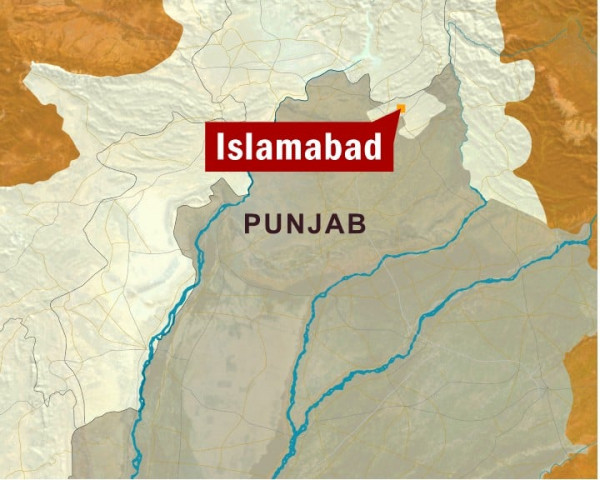Global crisis card: Pakistan ranks seventh in cervical cancer deaths
The Cervical Cancer Free Coalition launched the crisis card on Friday.

The Cervical Cancer Free Coalition launched the crisis card on Friday.
Cervical cancer kills more than 7,000 women every year in Pakistan, says the US-based Cervical Cancer Global Crisis Card. Pakistan is ranked seventh among 50 countries where cervical cancer is endemic.
The Cervical Cancer Free Coalition launched the crisis card on Friday ahead of Mother’s Day which will be observed on May 12.
In Pakistan, the deaths caused by cervical cancer are 12 per 100,000 people. The coalition collects data about the disease, across the globe, from official reports of the World Health Organisation (WHO), the United Nations, the World Bank and International Agency for Research on Cancer (IARC) and Globocan.
“It is really shocking that over 7,000 women die of this disease every year. The upcoming government must ensure that a comprehensive prevention programme is in place to tackle the disease,” said Federal Minister for Science and Information Technology Sania Nishtar.
“Availability of vaccines, screening and treatment for all women and girls must be ensured,” she added.
Nishtar said that huge progress had been made across the globe in terms of fighting the disease, but in Pakistan much more was needed to be done to save and improve lives of millions of women.
Talking to The Express Tribune Director of Health Awareness Society Dr Samia Babar said that anti-cervical cancer vaccine was available in Pakistan but due to its high cost and lack of awareness about its importance, it was not used much. She said that in a country like Pakistan cervical cancer was considered a taboo as it was linked to sexual transmission and taking an unmarried girl to a gynaecologist was also considered a stigma.
“Not only a gynaecologist but also a paediatrician can vaccinate a girl against cervical cancer. It is important for each and every girl before getting married to be vaccinated against this disease,” she said.
Dr Babar said that if the anti-cervical cancer was included in the Expanded Programme on Immunisation by the government, it may help save lives of thousands of women.
She also suggested that all gynaecologists should advise their patients to vaccinate their daughters against cervical cancer and provide them information.
Published in The Express Tribune, May 11th, 2013.



















COMMENTS
Comments are moderated and generally will be posted if they are on-topic and not abusive.
For more information, please see our Comments FAQ